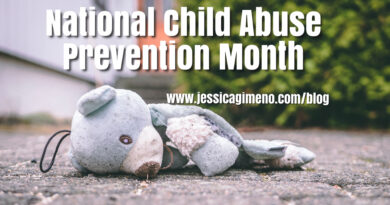5 Vital Notes from Empire’s Portrayal of Bipolar Disorder
Last Wednesday, I watched Empire for the first time. In fact, I watched ten episodes while studying 40 subjects for debate. All day long.

The next day, my students and I left for the State Championship. Wading through piles of research is exhausting. But Empire kept me awake. So far, I love it–it’s like Motown meets Dynasty! Empire has a lot to say about symptoms of bipolar, the impact of loved ones, and the intersection of race and mental illness.
Spoiler Alert!
If you’re watching Empire and haven’t finished the season finale yet, you might want to stop reading.
In the finale, we find out that the main character, Lucious Lyon, has Myasthenia Gravis, MG, a rare neuromuscular autoimmune disease that I have. Imagine my surprise when it was also revealed that his oldest son, Andre, has bipolar disorder. I was diagnosed with bipolar at 18. Now, if one of the characters gets diagnosed with polycystic ovarian syndrome, Empire will really capture my life! Minus the murders, affairs, and spontaneous musical numbers, of course.
Bipolar Symptoms Vary
Andre’s experience with bipolar disorder is very different from mine but I have friends with bipolar who have shown the same symptoms. Mental health discourse is richer for showing diverse experiences. (In my next post, I will write about Empire’s portrayal of MG.)
5 Lessons on Bipolar Disorder from Empire:
https://youtu.be/genxT_5XaBQ
1. Music therapy is powerful–Musical therapy is no substitute for proper medical treatment such as seeing a psychiatrist, talk therapy, or (if prescribed) medication. But music is powerful in fighting depression. Michelle White (played by Jennifer Hudson) is a gospel singer and musical therapist who is helping Andre. Music gives Andre hope. Resource: www.musictherapy.org from the American Music Therapy Assocation.
2. Anger can be a symptom of bipolar disorder–It’s important to note that not everyone with bipolar disorder exhibits a temper. I myself have not struggled with anger. (Pre-diagnosis, my depression manifested itself through crying spells.) But some people struggle with anger. When Andre stops taking medication, he gets angry. There is a touching scene where Andre and his brothers are trapped in an elevator, and they help him.
3. Spending sprees can be a symptom–Again, this isn’t true of all people with bipolar. Andre had a manic episode during college when he went on a spending spree, buying everyone presents. This precipitated his diagnosis. I once experienced this–there was a two week window of time–after my friend’s suicide and before my bipolar diagnosis. In that time, I spent hundreds of dollars buying New Kids on the Block memorabilia on eBay. I have never done anything like that since then. After reading about bipolar disorder, I realized this was a symptom and put myself on guard .
4. Minorities face additional discrimination–Andre’s dad, Lucious, refuses to believe his son has bipolar disorder. He insists, “Mental illness does not happen in this family.” Andre’s mother, Cookie, says that bipolar disorder is a “white people problem” but comes around. While homophobia and mental health discrimination are not exactly the same, they are both partially fueled by ignorance. One of the recurring themes is Lucious’ refusal to accept that his other son, Jamal, is gay. He tells Jamal he’s been so hard on him because being a minority is hard enough. Why add another label? As a person of color who has a mental illness, I have experienced both racism and mental health bigotry. In one episode, Andre struggles with suicidal thoughts, heightened by his father’s denial. Sometimes, unsupportive loved ones are trapped by fear, misconceptions, and discrimination. (Check out this mental health documentary MSNBC did on my life and Asian Americans by clicking here.)
5. Not every negative event is caused by bipolar disorder–At least two of the characters are guilty of premeditated murder. Andre is not one of them. In the last episode, Andre gets into a scuffle with his uncle that escalates. (Earlier, when Andre and Vern got into a verbal argument, Vern slapped him.) During their confrontation, Andre’s wife walks in. Afraid for her husband, she hits Vern over the head with a blunt object. Minutes later, they are horrified when they discover Uncle Vern is dead. While this is tragic, it’s clear that this didn’t happen because Andre has bipolar disorder. This accident was triggered by years of a dysfunctional pattern between two people who loved each other. One insidious myth the media and Hollywood perpetuates is that all negative events and malicious actions of mentally ill characters are solely attributed to the illness. But we are not all dangerous. In fact, people with mental illnesses are ten times more likely to be victims of violent crimes than the general population. Only 3-5% of all violent crimes are committed by people with mental illness.
Thoughts?
What do you think of Empire’s portrayal of bipolar disorder? Or other media?
Different Opinion
What Empire Gets Wrong (And Right) About Bipolar Disorder from The Root by Elaine G. Flores. She makes some excellent points.
–Your Stylist, Jessica Gimeno



